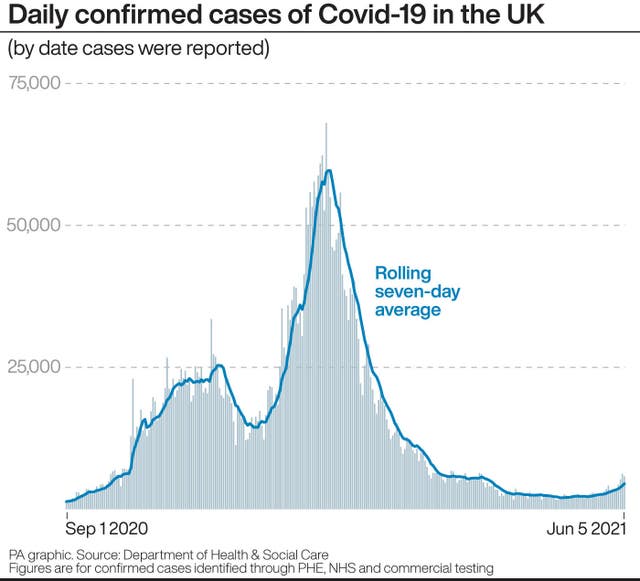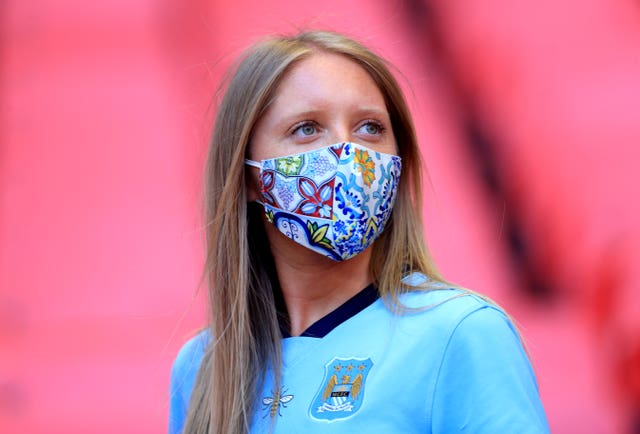
Ministers are “absolutely open” to delaying the June 21 unlocking in England if the Indian variant worsens the country’s coronavirus recovery prospects, the Health Secretary has said.
Matt Hancock, in what will be viewed as the clearest indication yet that the target date for lifting all restrictions could slip, stressed that June 21 was a “not before” date and that it was only “pencilled in” as the next step out of lockdown.
The senior Government minister also implied that social distancing could continue beyond the final stage of the Prime Minister’s road map.
The comments come as Covid-19 cases have continued to surge in the UK amid reports Boris Johnson is considering delaying so-called freedom day by at least two weeks in order to allow more people to be fully vaccinated against the Indian variant.
The Health Secretary, pressed on whether the June 21 removal of restrictions could be postponed if the Indian variant data “gets bad”, told the BBC’s Andrew Marr Show: “We are absolutely open to doing that if that’s what needs to happen.
“We said in the road map that June 21 is the date by which we would not take Step 4 before that date and that we would look at the data.
“That is exactly what we are doing, so the road map was set up in order to be able to take these sort of changes into account.”
It has been reported that revisions to the road map could see the Government backtrack on encouraging a return to the workplace, while social distancing in bars and restaurants is likely to remain, along with limits on audiences in theatres and cinemas.
Mr Hancock admitted the emergence of the Indian variant, which has become dominant in the UK, had made the “calculation” on whether to proceed with unlocking this month “more difficult” as he revealed the latest scientific advice is that the mutation – also known as the Delta variant – is 40% more transmissible than the Kent strain.
 (PA Graphics)
(PA Graphics)
The Health Secretary, with a decision on lockdown easing due in the next week, said he “wouldn’t rule out” measures such as wearing face coverings in public settings and working from home where possible continuing in the long term.
“The way we are looking at this is Step 4 involves the removal of the remaining social restrictions like the rule of six and some of the business closures which are still there,” he told the show.
“And separately we have a piece of work on what the social distancing rules should be after that.”
In a separate interview with Sky News’ Trevor Phillips On Sunday programme, Mr Hancock said the Government “haven’t yet set out the approach to social distancing after Step 4” and that plans were currently being worked up with scientific advisers about how to proceed safely.
Labour signalled that it could support some restrictions remaining in place as long as they were borne out by evidence.
 Measures on wearing face coverings in public places could continue after June 21, Matt Hancock has suggested (PA)
Measures on wearing face coverings in public places could continue after June 21, Matt Hancock has suggested (PA)
Shadow education secretary Kate Green told Sky News: “I would say if we have to maintain some protective measures beyond June 21, that is what the Government should do, but I think it is really important that it’s a decision taken on the basis of the data.”
Mr Hancock said he expected “around three fifths” of all adults to have been fully-vaccinated within the coming fortnight, with 52% currently double-jabbed, as indicators suggest vaccines are helping to cut the link between case rises and an increase in hospital admissions.
Former prime minister and Labour leader Tony Blair has argued that those who have been given both shots should be afforded extra freedoms as an incentive for people to take up the inoculation offer.
“I think since everybody is going to be able to get the vaccination, other than those who for medical reasons can’t, I think it really is important that people are encouraged to get vaccinated,” he told the Andrew Marr Show.
The drive to roll out vaccines to every adult by the end of July is continuing at pace as the Health Secretary announced those aged under 30 will be invited to book for their first dose this week.
The vaccine push comes amid growing concern that the Indian variant is fuelling a surge in cases across Britain.
Of the 12,431 Indian variant cases so far confirmed in the UK, 10,797 are in England, 1,511 in Scotland, 97 in Wales and 26 in Northern Ireland.
On Friday the UK recorded its highest number of new confirmed coronavirus cases – 6,238 – since late March, according to official figures, although Saturday’s number was down slightly at 5,765 lab-confirmed cases.
Dame Anne Johnson, professor of infectious disease epidemiology at University College London (UCL), said reopening would be a “very finely judged decision” and that society will need to learn to live with coronavirus.
Describing the incoming data this week as “absolutely critical”, the president of the Academy of Medical Sciences told Trevor Phillips On Sunday: “We certainly don’t want to go on delaying forever. It’s going to be a very finely judged decision when we see these results.”



Comments: Our rules
We want our comments to be a lively and valuable part of our community - a place where readers can debate and engage with the most important local issues. The ability to comment on our stories is a privilege, not a right, however, and that privilege may be withdrawn if it is abused or misused.
Please report any comments that break our rules.
Read the rules hereComments are closed on this article